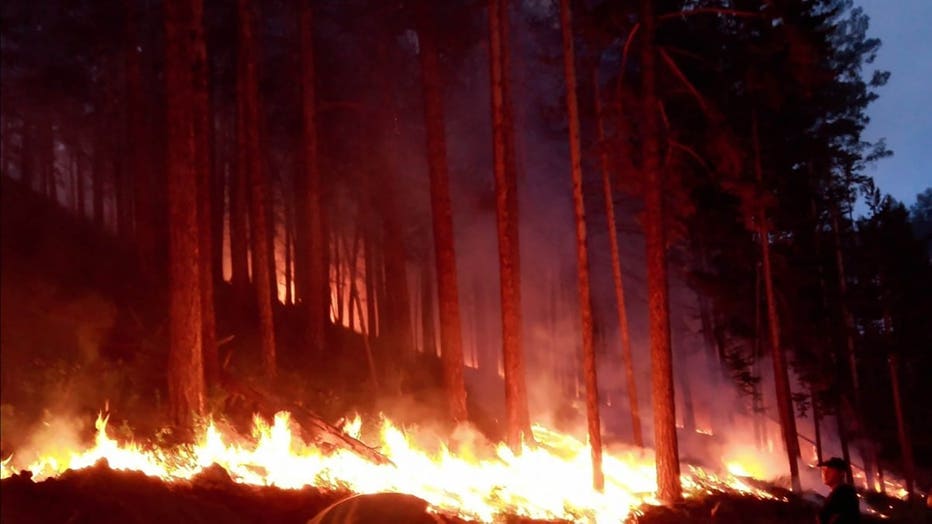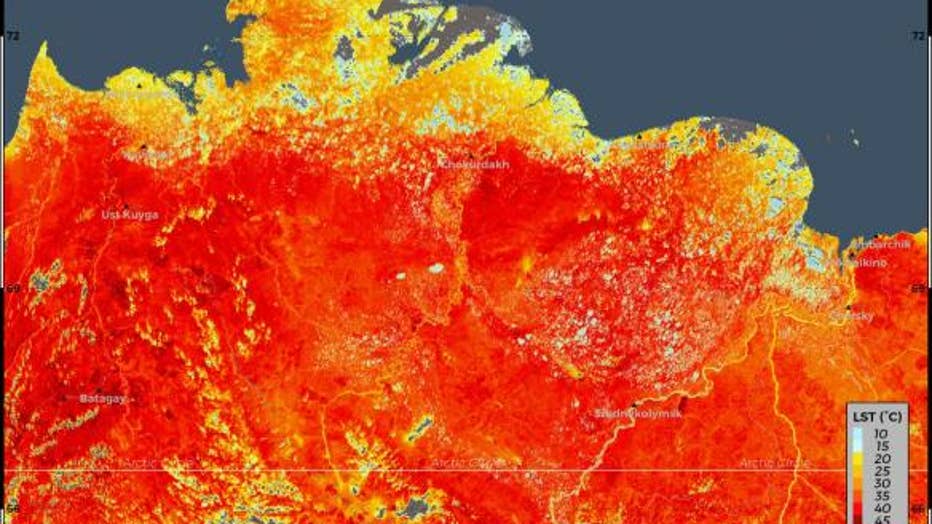Wildfires rage in Arctic, sea ice melts amid Siberian heatwave
GENEVA - The U.N. weather agency warned Friday that average temperatures in Siberia were 10 degrees Celsius (18 Fahrenheit) above average last month, a spate of exceptional heat that has fanned devastating fires in the Arctic Circle and contributed to a rapid depletion in ice sea off Russia's Arctic coast.

A wildfire rages in the forest on July 9, 2020 in Buryatia, Russia. (Photo by TASSTASS via Getty Images)
“The Arctic is heating more than twice as fast as the global average, impacting local populations and ecosystems and with global repercussions,” World Meteorological Organization Secretary-General Petteri Taalas said in a statement Friday.
He noted that Earth's poles influence weather conditions far away, where hundreds of millions of people live.
RELATED: Researchers say greenhouse gas emissions are helping push polar bears toward extinction by 2100
WMO previously cited a reading of 38 Celsius (100.4 degrees Fahrenheit) in the Russian town of Verkhoyansk on June 20, which the agency has been seeking to verify as a possible record-high temperature in the Arctic Circle. It comes as fires have swept through the region, with satellite imagery showing the breadth of the area surface.

A photo taken June 19, 2020 shows the land surface temperature in the Siberia region of Russia. A record-breaking temperature of 38 degrees Celsius (100.4 degrees Fahrenheit) was registered in the Arctic town of Verkhoyansk on June 20 in a prolonged
The agency says the extended heat is linked to a large “blocking pressure system” and northward swing of the jet stream that has injected warm air into the region. But WMO also pointed to a recent study by top climate scientists who found that such a rise in heat would have been nearly impossible without human-caused climate change.
WMO said information collected by the U.S. National Snow and Ice Data Center and the U.S. National Ice Center showed the Siberian heat wave had “accelerated the ice retreat along the Arctic Russian coast, in particular since late June, leading to very low sea ice extent in the Laptev and Barents Seas.”
RELATED: Burger King addresses climate change by changing cows' diets

